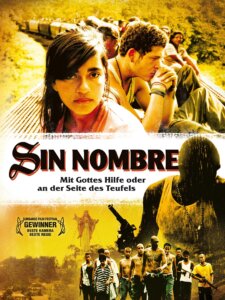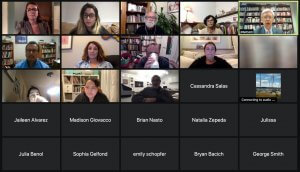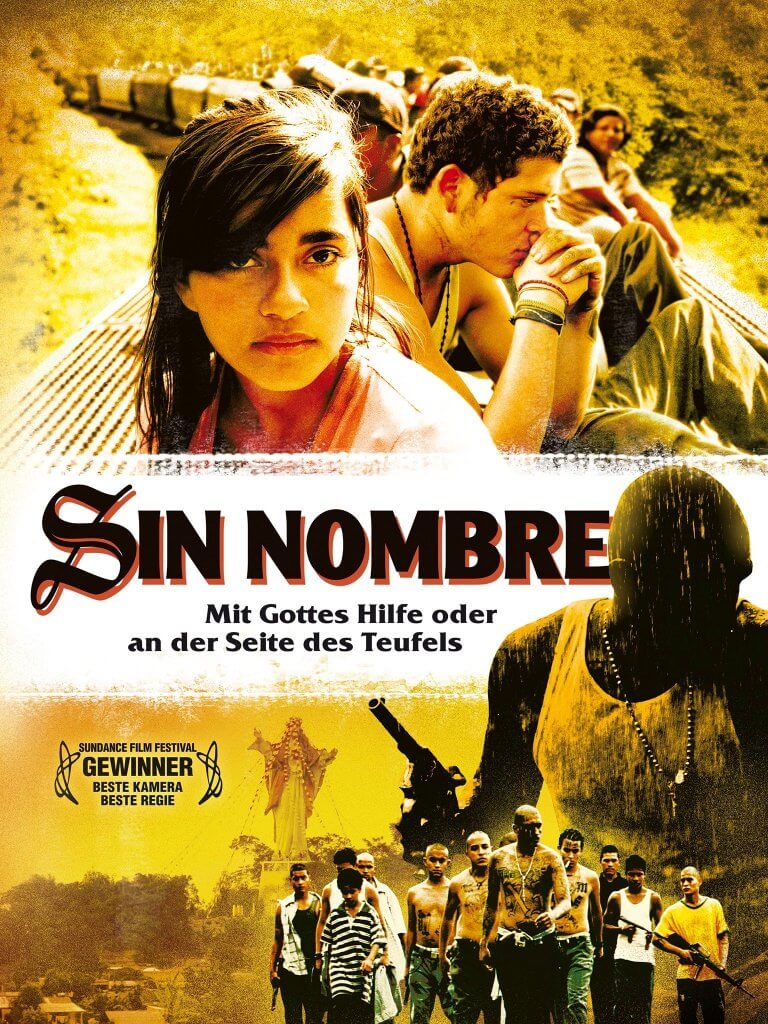By Vicki Lekkas

The 2021-2022 World Cinema Series began on October 6 with an engaging analysis and discussion of the movie Sin Nombre. Sin Nombre is a harrowing and moving story about a young man who attempts to escape from a cycle of gang violence towards a better life in the United States. Directed by Cary Joji Fukunaga, the film follows a young man, Casper, and his exposure to an extremely violent gang environment. His desire to break free of his gang ties is propelled by his encounter and friendship with a young Honduran woman, Sayra, who is traveling with her family to cross the U.S. border and ultimately connect with relatives in New Jersey. The movie illuminates the unfortunate and incomprehensible circumstances that immigrants must endure as well as how gangs wield control of their youth members in a terrifying fashion.
Dr. Pearson, the coordinator of the World Cinema Series, opened the event by providing context to the movie as it relates world events, anthropology, and the movement of peoples throughout the world. He discussed how the theme of this year’s series, “Living on the Edge: Displacement, Identity, and Resilience,” focuses on people that are driven by war, political violence, poverty to migrate to new lands. He noted that the film contained scenes of extreme violence, which was thoroughly discussed by the group later in the evening. After this brief introduction, Dr. Pearson introduced the agenda for the evening, which included discussions from three panelists: Dr. Priscilla Gac-Artigas, Dr. Manuel Chavez, and Gustavo Gac-Artigas.
Dr. Priscilla Gac-Artigas, Professor of Spanish and Latin American Literature in Monmouth’s World Languages and Cultures Department, discussed the cultural and lingual context of the film. She explained that, even as a fluent Spanish speaker, there were linguistic details in the movie that she could not understand since the film did such an excellent job at displaying how the gangs in these environments invent their own language in a sense. She shared several examples of how words may be cross-lingual, often a combination of Spanish and English, and commented on the etymology of many of the key words in the movie.
Dr. Manuel Chavez, Lecturer and Director of the Philosophy Program at Monmouth, provided more context on the environment that the gangs create and how prevalent the violence can be. He also provided commentary on the geo-political circumstances that have led to the types of violence, corruption, and destitution that have been allowed to grow and have unfortunately continued throughout Latin America.
Finally, Gustavo Gac-Artigas, a writer, playwright, actor, theater director, and publisher, offered a poetic commentary on the humanity of these people and how that is an often-overlooked consideration when viewing the story of immigration. He discussed various groups of people that are seeking a better home throughout the world and possible solutions to advance their cause. He suggested that we need to consider the frame of mind of these individuals and how we ought to turn our hearts towards these people who need compassion more than anything.

This World Cinema Series event provided the approximately 40 attendees with an evening of thoughtful and inspiring discussion not only on the film, but also on the global circumstances underlying the immigration of so many people throughout the world.

